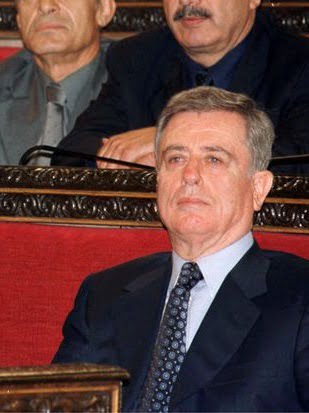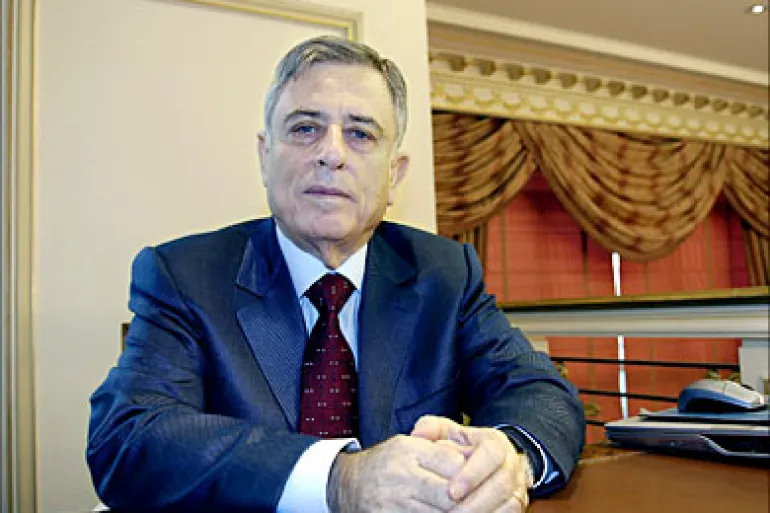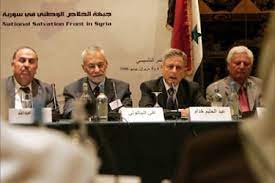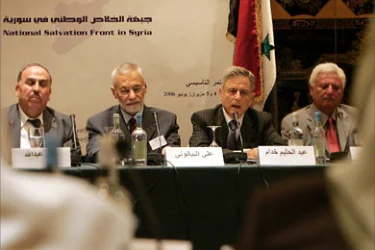Former Syrian Vice President Abdel Halim Khaddam emphasized that President Assad had rejected all attempts at political, economic, and administrative reform. Consequently, Khaddam became convinced that the process of development and reform would not progress and decided to resign. He cautioned Assad’s associates against repeating Saddam’s mistakes and urged the opposition to seek assistance from the United States to bring about a change in the regime. The interview with Khaddam shed light on how President Assad initially advocated for political reform, later shifted to advocating for economic reform, and eventually abandoned the call for administrative reform.
Khaddam explained that he had presented a study to the party leadership on multiple occasions, but became convinced that the development and reform process would not move forward. This realization led to his resignation. He went on to discuss the reasons behind his resignation, noting that the discussions had lasted for over a year. Despite the Qatar conference taking place, the necessary decisions were not made, particularly after his weekly meetings with Assad. During these meetings, the focus was on external pressure and the internal situation, with Khaddam emphasizing that Syria cannot effectively address both simultaneously while the people’s freedom is being suppressed.
Regarding his last meeting with Hariri, Khaddam mentioned that the conversation revolved around his relationship with the Syrian leadership. He advised Hariri to travel, especially after being informed that the Lebanese security forces had been withdrawn, leaving him with only six out of sixty members. Khaddam considered this a clear sign and encouraged Hariri to leave in order to avoid confrontations with the Syrian leadership. However, Hariri was determined not to comply with the issue of elections in Beirut and Lebanon, and Khaddam noted that Hariri was feeling anxious.
Khaddam acknowledged that although the opposition forces were not significant in number, all their parties were patriotic and loyal to the country. They had not taken any actions that would harm the country, including the Muslim Brotherhood.
He stressed the importance of dialogue in extracting all potential conflicts within the country, likening it to a haystack that should be carefully managed to prevent ignition. Even administrative reform required popular support and bold decisions for the future. National unity was necessary to safeguard the reform process and protect the country from external pressures. He emphasized that he had chosen the country over the regime.
Khaddam mentioned that mobile phone privileges had been granted to a relative and a friend, and the company’s revenue amounted to 700 million dollars, equivalent to one-sixth of the budget, which predominantly benefited individuals close to the president, such as cousins and friends.
He continued, noting the major shifts that occurred after the collapse of the Soviet Union, including the collapse of principles, ideologies, and lifestyles, the technological revolution, the implementation of globalization policies by the American administration, and the emergence of dormant issues such as national, religious, and sectarian fundamentalism. The world was moving in a different direction from the Cold War era, leading Khaddam to firmly believe that Arabs needed to rehabilitate their systems, considering the people as the source of power and promoting freedom, as they were the driving force for progress. As communist parties transformed into liberal entities and China transitioned into a state that had little to do with Marxism, it became clear that living in the present era with outdated ideologies was not feasible. Syria had to confront the new world, where information could no longer be withheld from the people. Globalization had become a reality across all fields, and after the collapse of the Soviet Union, Syria had become exposed to these changes.
Dialogue with America
Khaddam stated that he presented President Assad with a strategy for Syrian foreign relations, emphasizing the importance of adopting a policy of dialogue rather than confrontation with the United States. However, he stressed the need for a strong commitment to national principles, as compromising these principles would lead to a never-ending series of concessions.
During his address to party members, he disclosed the need for granting essential freedoms, which the leadership had considered a departure from party ideology.
He remarked, “I may not be the decision-maker, but I was involved in the decision-making process. Our foreign policy is a source of pride, while everyone criticizes our domestic policy.”
Khaddam revealed an incident during a meeting to discuss Resolution 1559, where someone highlighted the importance of a strong domestic front. He acknowledged that the Syrian people were questioning what measures had been taken to strengthen the country. He expressed concern that Syrians had limited opportunities to participate in governance, with climbing the ladder, opportunism, and influence peddling prevailing. He further added that ten individuals possessed more wealth than the assets of the Syrian Treasury. Khaddam advocated for decisive actions to address internal grievances and stressed the significance of protecting national unity, including constitutional amendments.
He cautioned against repeating Saddam’s mistakes and urged against closing one’s mind and ears to dialogue. Khaddam highlighted that such an approach had allowed the Iraqi opposition, allied with Syria and Iran, to provide political cover for the American intervention in Iraq. He emphasized the need to eliminate any justifications that might lead Syrian citizens to work against the country’s interests. He believed that the Iraqi scenario would not be replicated.
While he believed that the United States was unlikely to use military force against Syria, Khaddam expressed concerns about the prevailing pressure, isolation, and constant threats faced by the country.
He called for the return of all Syrians and the formation of a popular consensus to protect the country. He questioned the prevention of tens of thousands of citizens from returning, as it could breed resentment and harm national unity. Khaddam reiterated that the country’s interests should always supersede those of the regime.
He described the daily demonstrations as not accurately reflecting the true state of affairs in the country, citing Saddam’s staged million-person rallies. He argued that people do not openly express their national convictions due to the regime’s refusal to change its convictions and recognize the people as the source of authority.




